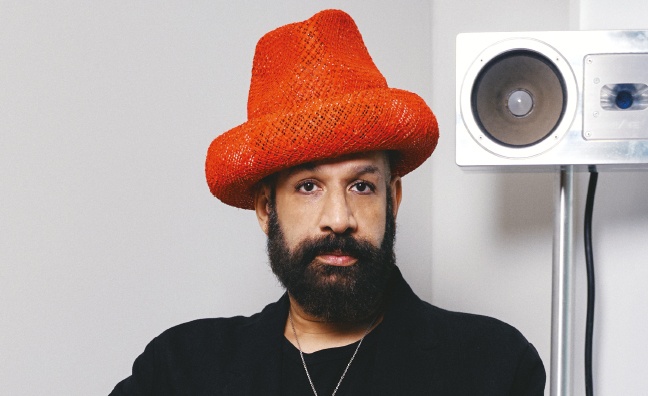Sony Music UK's director of artist and employee wellbeing Elton Jackson has discussed how workplace culture is changing across the business.
A trained psychotherapist and ex-Samaritan, Jackson is the first point of contact for an artist or employee who is struggling with their mental health and has been at the forefront of an inspirational shift at the major since taking on the then newly created role in late 2021.
“To the best of our knowledge, this is the first in-house role of its kind within the industry,” said Jackson, speaking in the July edition of Music Week. "The people who interviewed me were hungry for someone to be in this role, someone with proper training, someone who had done it, someone who had also been in therapy. They wanted to do it properly. Then I sat down with the CEO & chairman Jason Iley and we really hit it off.
"I knew this was something that I could get my teeth into and [would facilitate] positive changes, especially because I would be in-house and really part of the culture.”
That same year, Sony launched its Artists Forward and Artist Assistance schemes, both of which are aimed at supporting its roster in terms of wellness provision and career resources.
I think mental health is about expressing yourself. And so I think we’re always going to draw more people that are prone to anxiety, depression and neurodiversity into the music industry
Elton Jackson
“There was a lot of work already in place, up and running before I got here," added Jackson. "But what has really stood out is the quality of the internal relationships. Obviously, I can’t speak about what was going on before I arrived. But clearly, it was warm. But I think the bit that surprised me is the depth of relationship I’m building with people here, whether that’s been because of a specific mental health issue or an artist, or whether we’ve done a project together.
"We can have difficult conversations here, but I think we can have those conversations because we’ve got the culture that we’ve got.”
Jackson, who served as live frontman for house act The Grid for five years, touring and appearing on Top Of The Pops, pored over the current conversations towards mental health in the rest of the business in the wake of high-profile artists speaking out, such as Lewis Capaldi, Arlo Parks and Sam Fender.
"Recent research has shown that if you’re an artist or an employee within the music industry, you’re three times more likely to suffer from anxiety or depression or a neurological presentation. That really makes sense to me," said Jackson. "I think mental health is about expressing yourself. And so I think we’re always going to draw more people that are prone to anxiety, depression and neurodiversity into the music industry, because that’s how they get their feelings met, to some extent.
"The other thing that’s exciting, industry-wise, is that these conversations are actually being had. We work hard to promote the work we do at Sony. I’ve been on panels, this interview raises the profile again. And our younger artists aren’t just at the forefront of what’s going on musically; they’re talking about mental health far more, too. Generation Z are talking about it much more than my generation."
There has got to be the will for things to move, and the industry as a whole is definitely moving
Elton Jackson
Jackson talked about some of the issues that people come to him with most frequently.
“One of the biggest things we have put a lot of time and effort into thinking about is ADHD, autism and those sorts of neurodiverse conditions," he said. "Some people, at the outset, can feel very frightened of those titles and names, and diagnosis can feel quite scary. We aim to take the sting out of that. And there has been an influx of people wanting those discussions…
"We’ve also done a lot of work around anxiety. We’re all human beings, we all have the capacity for depression and anxiety within us, the point is how do you manage it if it becomes overwhelming? It’s all about getting to know yourself so that you can see the signs before you go right, deep down. It’s about creating a culture that can catch someone when they fall.”
Elaborating on his main aims at Sony, Jackson continued: “I don’t think there’s a beginning, middle and end, because I believe therapeutic intervention and community culture is something that you just need to keep feeding into. I want to do more of the same but better. I do workshops and training sessions, and so on, and that gives me a great path to the community here."
He concluded: "There has got to be the will for things to move, and the industry as a whole is definitely moving. Mental health is at the forefront of conversations within the industry at the moment and it’s not happening in other industries. We do seem to be leading; I think other corporates are way behind.
"That’s not to say other industries don’t have stuff in place, but we’re probably doing more and I guess that’s because we’re dealing with human beings all the time. We’re dealing with artists, we’re dealing with creativity. Human emotions are our product, that is what we’re selling.”
Subscribers can read the full interview with Jackson here.












